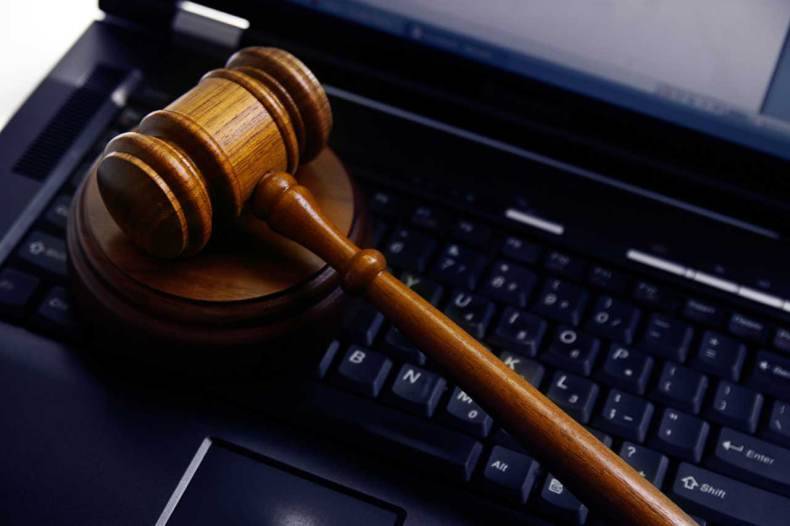The draft cyber law- Prevention of Electronic Crimes Bill 2015- is a perfect instance of throwing the baby out with the bathwater. The bill has very rightly been denounced as ‘draconian’ and an ‘infringement on fundamental rights and civil liberties’. Through this step, the government intends to curb the freedom of expression that has remained by and large intact in Pakistan since the advent of the age of digital media in the early years of the last decade. It will not be wrong to say that a civilian democratic government aims to snatch the right to express one’s thoughts freely and also get the powers to intrude privacy without sufficient safeguards.
The government is supposed to exercise powers as mandated by the people and hence cannot assume arbitrary powers to deprive people of their fundamental rights. The incumbent leadership must realize that it was the freedom of media that helped them return to Pakistan and end General (r) Pervez Musharraf’s rule. The laws framed today to curtail freedom of expression are liable to be used tomorrow by some other regime to suppress political activities.
The bill has been approved by the Standing Committee, where 14 of the 20 members belonged to the PML-N, and the majority rode roughshod over the saner voices of the opposition members from the PPP and MQM. Such a hurried legislation, when passed and promulgated, will be challenged in the courts of law on the grounds of the violation of fundamental rights and ignoring fundamental principles of law. The democratic mandate should not be taken as a license to establish the tyranny of the majority. But the PML-N leaders, whenever they are in power, have generally shown a tendency to enact laws to the effect of restricting individual freedoms.
Faced with an extraordinary situation, the solution should be to strike a balance between two competing needs- the prevention of cybercrime on the one hand and the preservation of fundamental rights on the other. When military courts were established, human rights groups raised the point that, allowing constitutional principles to be trampled even in an emergency situation will be a slippery slope. And as civil society didn’t raise a unified voice at the time, the government has displayed its complete disregard for the interests of stakeholders while finalizing the draft of the cyber crime prevention bill.
In Sections 17 and 18 of the bill, political criticism and political expression in the form of analysis, commentary, blogs and cartoons, caricatures and memes, has been criminalized. Under section 26, the ISPs, restaurants, malls, hotels, offices, airports bus stations and any places with Internet facility will be required to hold data records for 3 months or else they may face imprisonment.
As per section 20, posting a photograph of any person on Facebook or instagram without their permission is an offence and sending an email or message without the recipient’s permission will become an offence as per section 21. Under the new law, there no longer exists a need for an investigation officer to give reasons to obtain a warrant from the court to search, seize or make arrests.
According to section 31, “(1) The Authority or any officer authorized by it in this behalf may direct any service provider to remove any intelligence or block access to such intelligence if it considers it necessary in the interest of the glory of Islam or the integrity, security or defence of Pakistan or any part thereof, friendly relations with foreign states, public order, decency or morality, or in relation to contempt of court, commission of or incitement to an offence. (2) The Federal Government may prescribe rules for adoption of standards and procedure by the Authority to monitor and block access and entertain complaints under this section. Until such procedures and standards are prescribed, the Authority shall monitor and block intelligence in accordance with the directions issued by the Federal Government.” The ‘justifications’ of blocking websites or other content, have been couched in terms of Article 19 of the Constitutions relating to the freedom of expression but without defining the ‘glory of Islam’, ‘integrity, security or defence of Pakistan’, ‘decency or morality’ with exactitude, the law will become a tool in the hands of the government to remove access to any unpalatable content.
Legislative transparency requires that the draft of the bill should be made public and the feedback of stakeholders, including Internet Service Providers (ISPs) and civil society, should be taken into account before sending the final draft to the National Assembly for discussion. After the 22nd amendment, already challenged in the apex court, the proposed Electronic Crimes Bill 2015 is another compromise on civil liberties in the name of national security and the law, on promulgation, will have far reaching implications for inalienable rights of citizens.
Saturday, April 20, 2024
Civil liberties attacked

Policitising Tragedy
April 20, 2024
Tehran to Rafah
April 20, 2024
A New Leaf
April 20, 2024
A Tense Neighbourhood
April 19, 2024
Dubai Underwater
April 19, 2024
Dangers of Deepfakes
April 20, 2024
Feudalism
April 20, 2024
Kite tragedy
April 19, 2024
Discipline dilemma
April 19, 2024
Urgent plea
April 19, 2024
ePaper - Nawaiwaqt
Advertisement
Nawaiwaqt Group | Copyright © 2024





